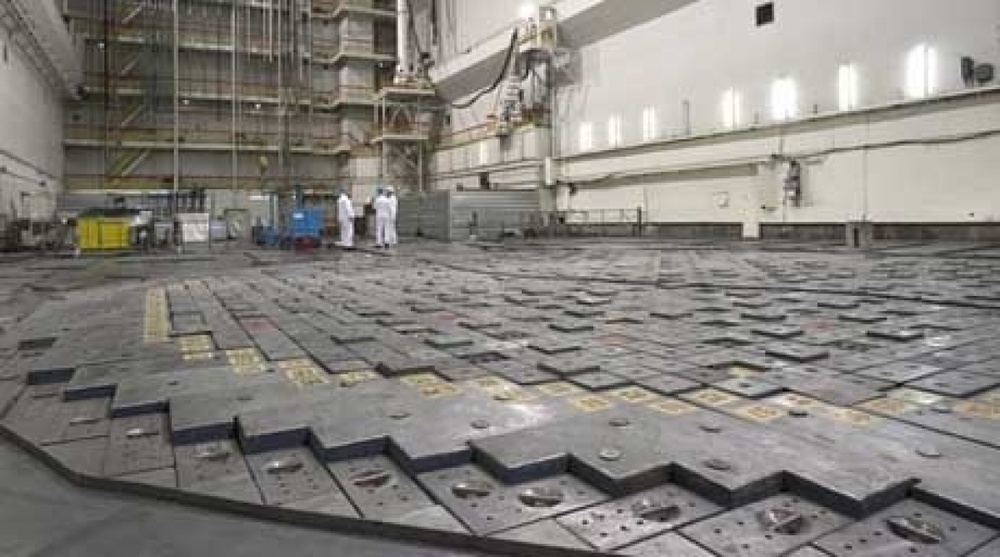
Kazakhstan is negotiating with South Korea on constructing a nuclear power station, KazTag reports, citing an unnamed source close to the talks. “Kazakhstan’s Ministry of Industry and Trade is negotiating with South Korea’s KEPCO over uranium production and construction of a nuclear power plant. South Korea’s companies have been unsuccessfully trying to boost purchase of uranium from Kazakhstan. During informal meetings with Kazakhstan’s officials, reps of KEPCO found a common language with the Kazakh side. Moreover, the Korean side has suggested contributing to construction of a nuclear power plant in Kazakhstan”, the source said August 22. According to the source, “reps of the Kazakhstan’s Ministry of Industry and Trade are holding the talks upon the Government’s consent. The Korean side was represented by a congressman of the ruling Grand National Party (…) Within the two nearest weeks a large-scaled Korean delegation is come to Kazakhstan to set forth a detailed proposal”. In November 2010 Vice Minister of Environment Eldana Sadvakasova told that “the Balkash thermal power plant may work on nuclear energy (…) As of now it is more economically viable to construct a power plant working on coal. The power generated will be cheap (…) However, from the environmental perspective, it would be more reasonable to construct a nuclear power station. There will be less exhaust”. At the time she said that starting from 2016 coal power stations might shift to nuclear energy. According to Finance.Yahoo , Korea Electric Power Corporation, an integrated electric utility company, engages in the generation, transmission, and distribution of electricity in Korea. The company generates power from nuclear, coal, oil, liquefied natural gas, hydro, wind, and solar sources. As of December 31, 2010, it operated 487 generation units, including nuclear, thermal, hydroelectric, and internal combustion units with a total installed generating capacity of 65,559 megawatts. As of December 31, 2010, the companys transmission system consisted of approximately 30,676 circuit kilometers of lines of 765 kilovolts and others, including high voltage direct current lines, as well as 731 substations with an installed transformer capacity of 256,317 megavolt-amperes; and distribution system included approximately 101,692 megavolt-amperes of transformer capacity and 8,343,076 units of support with a line length of 428,529 circuit kilometers. It provides electricity primarily to industrial, commercial, residential, educational, and agricultural customers. The company was founded in 1961 and is headquartered in Seoul, South Korea.





Kazakhstan is negotiating with South Korea on constructing a nuclear power station, KazTag reports, citing an unnamed source close to the talks.
“Kazakhstan’s Ministry of Industry and Trade is negotiating with South Korea’s KEPCO over uranium production and construction of a nuclear power plant. South Korea’s companies have been unsuccessfully trying to boost purchase of uranium from Kazakhstan. During informal meetings with Kazakhstan’s officials, reps of KEPCO found a common language with the Kazakh side. Moreover, the Korean side has suggested contributing to construction of a nuclear power plant in Kazakhstan”, the source said August 22.
According to the source, “reps of the Kazakhstan’s Ministry of Industry and Trade are holding the talks upon the Government’s consent. The Korean side was represented by a congressman of the ruling Grand National Party (…) Within the two nearest weeks a large-scaled Korean delegation is come to Kazakhstan to set forth a detailed proposal”.
In November 2010 Vice Minister of Environment Eldana Sadvakasova told that “the Balkash thermal power plant may work on nuclear energy (…) As of now it is more economically viable to construct a power plant working on coal. The power generated will be cheap (…) However, from the environmental perspective, it would be more reasonable to construct a nuclear power station. There will be less exhaust”. At the time she said that starting from 2016 coal power stations might shift to nuclear energy.
According to Finance.Yahoo , Korea Electric Power Corporation, an integrated electric utility company, engages in the generation, transmission, and distribution of electricity in Korea. The company generates power from nuclear, coal, oil, liquefied natural gas, hydro, wind, and solar sources. As of December 31, 2010, it operated 487 generation units, including nuclear, thermal, hydroelectric, and internal combustion units with a total installed generating capacity of 65,559 megawatts. As of December 31, 2010, the companys transmission system consisted of approximately 30,676 circuit kilometers of lines of 765 kilovolts and others, including high voltage direct current lines, as well as 731 substations with an installed transformer capacity of 256,317 megavolt-amperes; and distribution system included approximately 101,692 megavolt-amperes of transformer capacity and 8,343,076 units of support with a line length of 428,529 circuit kilometers. It provides electricity primarily to industrial, commercial, residential, educational, and agricultural customers. The company was founded in 1961 and is headquartered in Seoul, South Korea.


 +7 (777) 001 44 99
+7 (777) 001 44 99















































